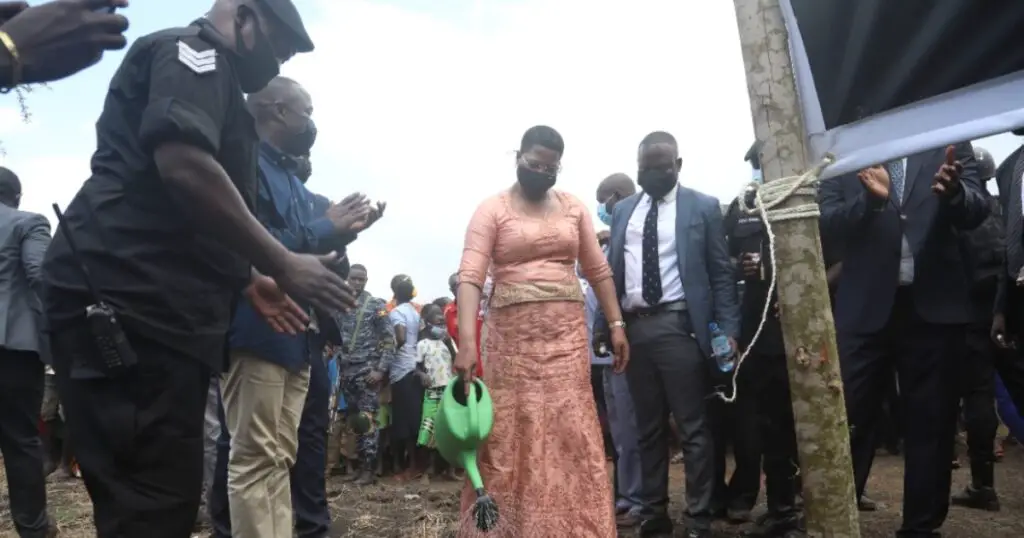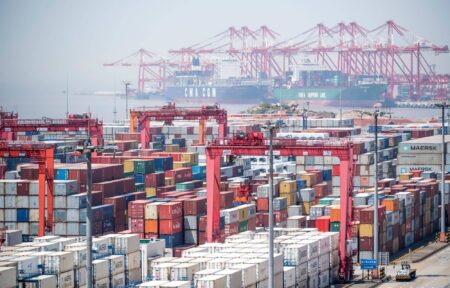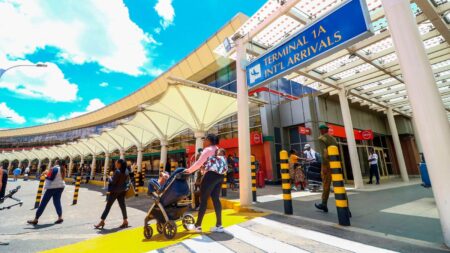- Uganda has kicked off the construction US$ 19.9 million Acomai irrigation scheme
- The project aims to improve access to water for agricultural production, which would lead to increased agricultural productivity
- The project’s contractor was also tasked to construct a technical school in Kamutur as part of their corporate social responsibility
Uganda had broken ground to build a US$ 19.9 million Acomai irrigation scheme in Kamutur Sub-county in Bukedea District to improve water access.
The government of the East African nation also intends to construct another scheme in Bulambuli District.
The proposed Acomai irrigation schemes in Bukedea and Bulambuli will cover 2,200 hectares of land. In addition, they will come with additional infrastructure such as an administration block, two drying yards, a warehouse, a workshop, a bridge and 58kms of access roads.
Both projects are under the Agricultural Value Chain Development Programme and implemented by the Ministry of Agriculture, Animal Industry and Fisheries.
The aim of the projects is to improve access to water for agricultural production, which would lead to increased agricultural productivity.
At the same time, the project will improve post-harvest handling, agro-processing, value addition, and market access.
Speaking during the groundbreaking event, the Deputy Speaker Anita Among, who is also the Woman MP for Bukedea District, said the irrigation scheme will soon become a reality.
She tasked the Ministry of Agriculture to closely monitor its implementation to ensure that the multi-billion project is not mismanaged.
“I am glad that the dream that started in 2016 has finally come to reality. My people here know how long this journey has been and how much we need this project,” Among said.
“I don’t want you [the Ministry of Agriculture] to leave this baby in the hands of people who will mismanage it. On behalf of the people of Bukedea, I am interested in the success of this project, and I will therefore monitor it myself,” Among said.’
Farmers in Uganda Urge Govt to Increase Irrigation Funding
Technical school
The Deputy Speaker also tasked the contractor, Dott Services, to make sure that the project is completed on time and further requested them to construct a technical school in Kamutur as part of their corporate social responsibility.
The contractor welcomed the proposal and promised to have the school built within six months to the community’s delight.
Among’s urgent need for a technical school comes when the country has reported an increased number of school dropouts as a result of the COVID-19 pandemic.
School’s resumption
Among’s sentiments come before schools reopening in January 2022, nearly two years after the government shut them down as a COVID-19 mitigation measure.
The Exchange Africa recently reported that Prime Minister and Leader of Government Business in Parliament, Robinah Nabbanja said that the country’s education sector is on course in rolling out the new lower secondary school curriculum when schools reopen.
Nabbanja said the government has recruited and deployed 1,598 staff in the newly completed seed secondary schools under the Uganda Inter-governmental Fiscal Transfers Programme.
Economic recovery
In a related story, the World Bank recently reported that Uganda’s growth would be between 3.5% and 4.0% in Fiscal Year (FY) 22 and about 5.5% in FY23.
In a statement, the group said both projections are about one per cent lower than the June 2021 forecast, according to the latest Uganda Economic Update (UEU).
The economic recovery in FY21 tapered off in early FY22 mainly due to the more severe second COVID-19 wave in mid-2021 and the related lockdown measures.
The group said that although growth rebounded since the start of the COVID-19 crisis – driven by a pick-up in private consumption and investment and a recovery in exports – the country is still likely to face a stop-start recovery until there is wider coverage of the COVID-19 vaccine.
Commenting on the projections, Mukami Kariuki, World Bank Country Manager for Uganda said that to ensure an inclusive economic recovery, faster deployment and widespread coverage of the vaccine is critical.
“It is encouraging to note that in January 2022, schools will be opened; and support to micro, small and medium enterprises has been prioritized to stimulate job creation. Staying the course will require sustained prudent and transparent fiscal and debt management,” she said.
Uganda to implement new secondary curriculum as schools closure nears 2 year mark











